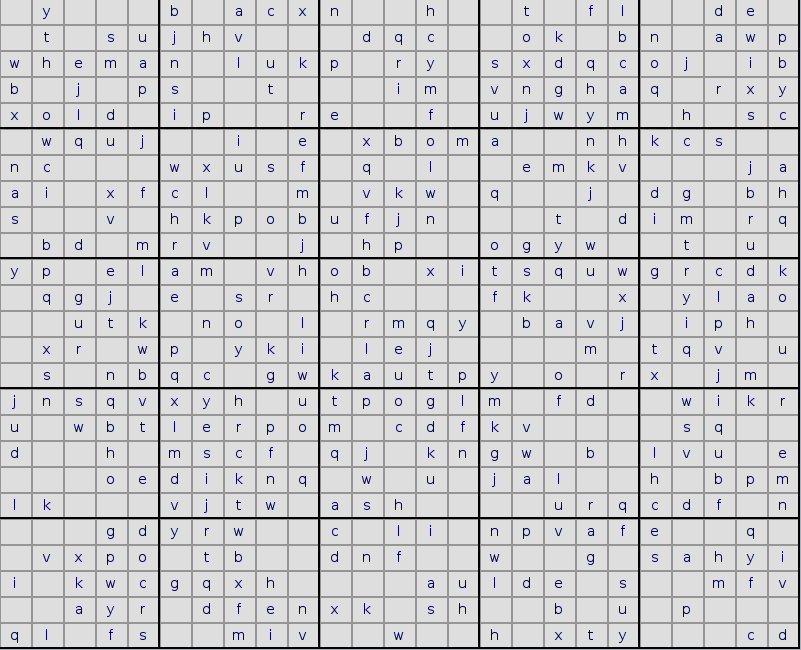Will Shortz & the Death of the Author
By:
September 28, 2009

Listening to NPR yesterday morning for the first time in a month of Sundays, I caught the puzzle segment with Will Shortz. While Will and Liane engaged in their smile-weary repartée and my wife sorted Us and Ps into the names of world leaders with astonishing speed, my own mind wandered back to the Barnes & Noble I desultorily frequented when I worked in Copley Square. Swimming into my vision came the repressed memory of a table near the front of the store groaning with books “by” Will Shortz. I remember being staggered as I counted the titles with Shortz’s name on them—the limp covers, the rheumy gray of the pages. There were seventeen separate crossword puzzles books and Sudoku compilations, all with the same preface.
At the time, it seemed like a strange kind of comic riff was being played on the whole notion of “author.” Could he really have had seventeen books out at once, I wondered? and revved up the quantitative bibliographer in me. I paid a quick visit to Amazon and plugged the maestro’s name into the “author” field of the advanced search page. The results were astounding: for 2009, 67 (SIXTY-SEVEN) books are listed on Amazon with Shortz’s name in the author field. To date! His complete Amazon bibliography runs to 763 separate titles. To be fair, Shortz is typically billed on the cover as “editor.” But the Sudoku books would seem to flatten even the concept of “editor”: the puzzles are generated by simple software applications.
Authorship here is entirely meta; there’s a sense in which the Shortz corpus seems like a grand publishing performance-art piece. Shortz’s bibliography is like a model-railroad-size recreation of the entire publishing world in puzzle-addled miniature. He’s the “author” of horror puzzle books (The Little Orange Book of Harrowing Sudoku: 335 Frighteningly Fierce Puzzles), business performance & productivity puzzle books (KenKen for your Coffee Break: 100 Logic Puzzles to Make You Smarter), highbrow puzzle books (The New York Times Forever Sunday Crossword Puzzle Book), puzzles-for-dummies books (Will Shortz Presents Everyday Easy Sudoku), even New-Agey self-help puzzle books (The New York Times Soul-Soothing Crosswords: Seventy-Five Relaxing Puzzles). The only genre that seemed to be missing was the novel—now that’s a puzzle book I’d like to see.
